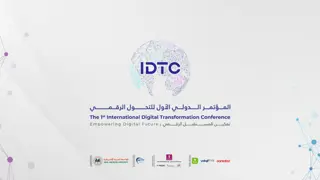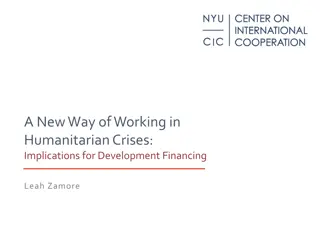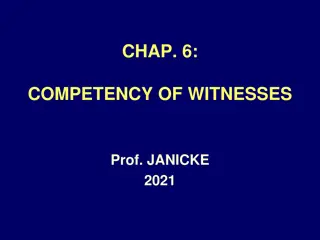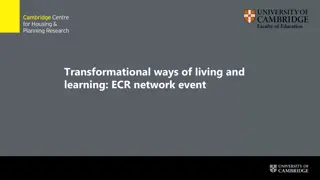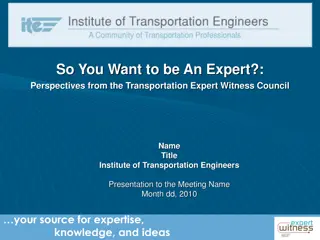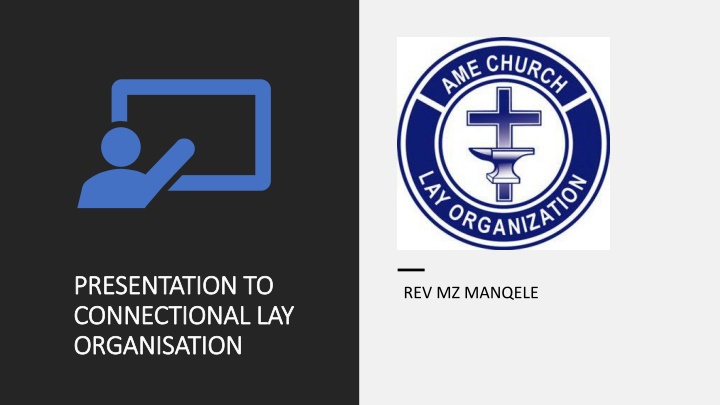
The Beliefs and Teachings of the Global Methodist Church
Explore the core beliefs of the Global Methodist Church, including its Wesleyan expression of Christianity, commitment to racial equality, and transformative approach to faith. Learn about the teachings of Jesus and the challenges faced in ministry internships.
Download Presentation

Please find below an Image/Link to download the presentation.
The content on the website is provided AS IS for your information and personal use only. It may not be sold, licensed, or shared on other websites without obtaining consent from the author. If you encounter any issues during the download, it is possible that the publisher has removed the file from their server.
You are allowed to download the files provided on this website for personal or commercial use, subject to the condition that they are used lawfully. All files are the property of their respective owners.
The content on the website is provided AS IS for your information and personal use only. It may not be sold, licensed, or shared on other websites without obtaining consent from the author.
E N D
Presentation Transcript
PRESENTATION TO PRESENTATION TO CONNECTIONAL LAY CONNECTIONAL LAY ORGANISATION ORGANISATION REV MZ MANQELE
What religion is global church? As a Wesleyan expression of Christianity, the Global Methodist Church professes the Christian faith, established on the confession of Jesus as messiah, the Son of God, and resurrected Lord of heaven and earth The AME is doctrinally Methodist, clergy, scholars, and lay persons have written important works which demonstrate the distinctive theology and praxis which have defined this Wesleyan body
What does the African Methodist Episcopal Church believe? The AME church believes that all people should be free to worship God without experiencing racism. They follow traditional Methodist beliefs including the belief in the Holy Trinity, Baptism, and The Lord's Supper. Faith is seen to be transformative and the scriptures show people how to live.
Among His many teaching techniques, Jesus used experiential learning to link the disciples previous knowledge with real-world experiences. In this lesson, we explore Jesus teaching techniques in the sending of the seventy(two) into Samaritan territory (Lk. 10:1-17) Secondly, we look at how we apply the techniques in the Transcendental Transformation for Continuing Witness Here, we focus on the specific example of certain ministry internships, where Jesus commissioned seventy(two) to engage in spiritual warfare in Samaritan villages (Lk. 10:1-17). Transcendental Transformation for Continuing Witness
Summary of Challenges to their Ministry Model Jesus teaching immediately before the internship not only challenged the disciples model of ministry, but also served to frame the learning experience.
Summary of Challenges to their Ministry Model Jesus teaching framed expectations for bringing in the Kingdom in the following ways: They refined roles and sense of identity in bringing in the Kingdom; They framed ministry in terms of selflessness, austerity, and meekness; they prepared themselves for rejection; and they expected God to protect them. These challenges to our ministry model are bound to continue during the ministry internship an intense, engaging time for ministry and learning.
The disciples became the vehicles through which the impending kingdom of God was embodied in historical reality. The kingdom of God must no longer be just something to theorize about; it must indeed be among us. EXPERIENTIAL LEARNING
The Realities of our church Just like we need to go to the zoo in order to learn about animals through observation, instead of reading about them, we need to get around in our churches in order to appreciate what happens in our churches globally. We cannot learn about and have influences to our church direction by watching each other on media. We need to get there to appreciate the realities of our global church if we are to make a difference in it. The church transcends ethnic, cultural, and racial lines, being comprised of all those who have repented of their sin and trusted in Christ alone for their salvation.
Throughout the connection, we must commit ourselves in Christ to share life, resources and needs. As part of the connectional church and in response to particular historical and geographical contexts, we affirm our commitment to share persons in mission. Relying upon God s grace, we commit ourselves to share in God s healing of God s continuing creation. Recognizing the freedom of God s spirit to act in diverse ways, we commit ourselves to engage in dialogue, witness and common cause, we share a vision of peace, justice and the integrity of creation. ENSURING UNDERSTANDING OF OUR GLOBAL CHURCH
What is liberating Gospel? Liberation theology is a Christian theological approach emphasizing the liberation of the oppressed. It engages in socio-economic analyses, with social concern for the poor and political liberation for oppressed peoples and addresses other forms of inequality, such as race or caste. Therefore, we must be free to serve God devoid of distractions and inhibitions. It is never a blanket freedom. We are duty bound to yield our entire beings to the service of God, if we are really saved.
Christian Faith While it started with a small group of adherents, many historians regard the spread and adoption of Christianity throughout the world as one of the most successful spiritual missions in human history. The Christian faith centers on beliefs regarding the birth, life, death and resurrection of Jesus Christ. Apostle s Creed, our formal statement of doctrinal belief ordinarily intended for public avowal by our congregations, must form part of our every Sunday worship throughout our connection. This is what we need to continue to do in our church.
LIBERATING GOSPEL DEFINING WISDOM: Wisdom is a capacity of the mind that allows us to understand life from God's perspective.
Fear God Solomon says the fear of the Lord is the beginning of wisdom (see Proverbs 9:10). Desire Wisdom The second step to getting wisdom is to desire it with all our heart. As Solomon says, we must look for it as for silver and search for it as for hidden treasure (Proverbs 2:4). Pray for Wisdom As James tell us, If any of you lacks wisdom, you should ask God, who gives generously to all without finding fault, and it will be given to you (James 1:5). STEPS TO ACQUIRING WISDOM
STEPS TO ACQUIRING WISDOM Study God s Word The fourth step in getting wisdom is studying and meditating on God s Word (see Psalm 19:7). We shouldn t rely merely on our own understanding, though, but lean on the wisdom and insight produced by Christians throughout the church s history.
LIVING A PRPOSEFUL LIFE Purposeful Living is a structured and Scripture-based process to find your calling from God and fulfill your God-given purpose. (Isaiah 43:7) The right thing to do is bring glory to God because there is no one greater who is worthy of trust, adoration, and worship. Therefore, for the Christian, we are to live to bring glory to God how we do that is through prayer and study of His Word, the Bible, so that we might better know what He has for us.
LIVING A PRPOSEFUL LIFE The ultimate purposes are: (1) make available God's biblical principles, (2) spread Christ's liberating gospel, and (3) provide continuing programs which will enhance the entire social development of all people.
QUESTIONS AND COMMENTS THANK YOU


